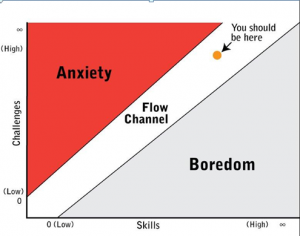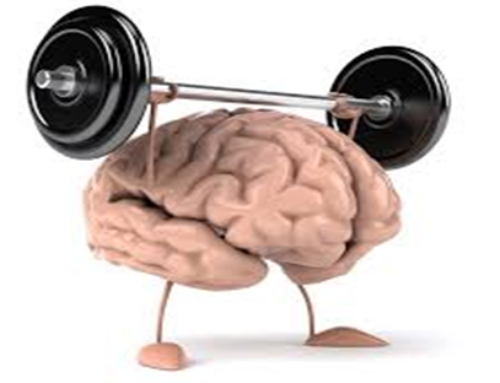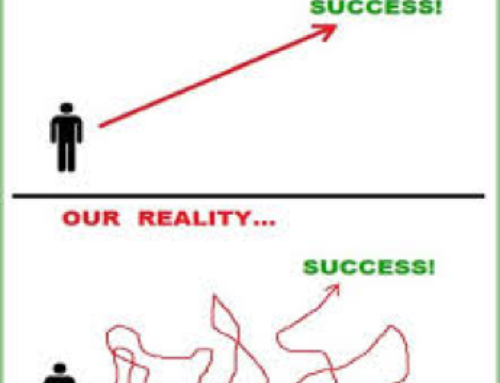You’re watching Federer play Nadal in the final set, its match point, here comes the serve and you know they have one thing in common, the game face tells you so – they’re in the zone. We’ve all been there at some point, you lose yourself in time, you’re in the groove, centred, present, and the magic just happens. It’s a state of mind and it’s called achieving Flow.
This Flow is a psychological state where you are completely absorbed in what you are doing and are completely oblivious to time, space and all those outside distractions. This absorption brings with it an uncanny effectiveness that has you doing all the right things at the right time in complete harmony, getting the best results.
Hungarian – American psychologist, Dr Mihaly Csikszentmihalyi first studied the theory of Flow back in 1975, he discovered that people are at their happiest when they are in a state of Flow. This makes complete sense, since we will often find ourselves in a state of Flow when we are doing something that we love and something we are good at. Csikszentmihalyi described Flow as “being completely involved in an activity for its own sake. The ego falls away. Time flies. Every action, movement and thought follows inevitability from the previous one, like playing jazz.”
 Many athletes and sports people find themselves in the zone and in a state of Flow when they are completely engaged in their performance and often this leads to outrageously positive accomplishments on the sporting field but Flow can be found in other activities and challenges and can lead to unexpected opportunities to flourish.
Many athletes and sports people find themselves in the zone and in a state of Flow when they are completely engaged in their performance and often this leads to outrageously positive accomplishments on the sporting field but Flow can be found in other activities and challenges and can lead to unexpected opportunities to flourish.
So how do we find Flow? Well, interestingly Flow only occurs when the activity we are doing is a higher than average challenge that requires above average skills. If the activity exceeds our level of skill then anxiety and worry start to creep in and this will diminish our ability to achieve Flow. Likewise if the activity is below our skill level, we become bored and our interest will drop, stopping us from striving to achieve a state of Flow. So the key is to find a balance between the challenge of the task and the skill of the performer.
For some, finding Flow may be easier than for others. Those with an autotelic personality find achieving that state of mind much easier than others. What and who is autotelic you ask? It’s the type of people who are internally driven, not self centred, naturally curious, persistent and just enjoy the task at hand rather than being driven by external factors such as comfort, money, power or fame.
Of course no one is fully autotelic, because we all have to do things even though we don’t necessarily enjoy them. There is a gradation though, ranging from individuals who almost never feel that what they do is worth doing for its own sake; to others who feel that most things they do are important and valuable in their own right. It has also been found that people with an autotelic personality have a greater preference for high action opportunity, high skills situations that stimulate them and encourage growth than those without an autotelic personality. As mentioned before, it’s these high challenge, high skills situations that people are most likely to enter the Flow state.
Wondering whether you have an autotelic personality and if you don’t, where you can find it? Don’t worry there are ways to harness that side you of you. Try to channel the five C’s of the complex autotelic personality
- Clarity: knowing what you want to do as you go through the everyday activities of life.
- Centring: becoming one with what you are doing.
- Choice: the understanding that you have possibilities and are not forced to do the things you do.
- Commitment: the ability to care about the activities you do.
- Challenge: the setting of higher and higher goals for yourself as you master your current skill level.
So give it a go, who knows what you could achieve, not just in sporting or physical accomplishments but across the board and especially in the workplace. By creating a workplace atmosphere that allows for Flow and growth, we can increase the happiness and achievement of our time at work. Csikszentmihalyi argues that with increased experiences of Flow, we will experience ‘growth towards complexity,’ in which we will flourish as our achievements grow and with that comes development of increasing ‘emotional, cognitive, and social complexity.’ Sounds good to me. Bring on the Flow.





